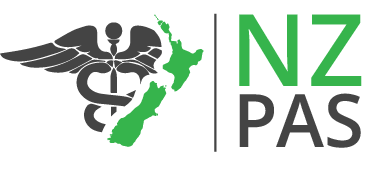NZPAS FAQs
Find answers to common questions about our organisation and PAs in New Zealand
FAQs
What is the status of the PA profession in NZ now?
The PA profession is not regulated, meaning PAs cannot have a NZ registration / certification and therefore are limited in their scope of practice. The NZPA society is working toward regulation and submitted an application in Feb 2017 to Health Workforce New Zealand. This application is moving through the regulation process and a regulation authority is being determined. NZPAS is currently working diligently to support the process and to help the Ministry of Health facilitate regulation for the increased number of Physician Associates working in Aotearoa.
Who can work in NZ as a Physician Associate?
PAs need to have at least 5-years experience in the US, Canada, or UK and in the specialty they will be employed to work in New Zealand. This is consistent with requirements for doctors entering New Zealand.
- PA’s certified and trained in the USA, Canada, or the UK
- PA’s with 5 years’ professional experience
- PA’s with 3 recent years’ experience in the scope they will be employed to work in NZ (This is consistent with requirements for doctors entering New Zealand. )
- As regulation in NZ progresses, criteria might be updated.
- For the most up-to-date info regarding work visas, visit the Immigration New Zealand website.
Why do people choose to become PAs instead a doctor?
The length of time in schooling, the cost of schooling, the level of autonomy, the ability to change specialties, annual salary, and training under the medical model are just a few reasons why becoming a PA is the most appealing option for many compared to the other provider roles and allied health fields.
Are there Physician Associates/Assistants (PAs) in New Zealand?
Are there many PA jobs in NZ?
Many practices currently have PAs and the number of clinics interested in hiring a PA is growing. US, Canada, and UK-trained PAs can reach out to the only two current PA recruiting companies in NZ at this time; GP Solutions and WellMed Medical Recruitment. While NZPAS has no official affiliation with either company, we do refer prospective job seekers to them. Clinics can also advertise on the NZPAS website.
Both NZPAS and the recruiting companies are working with practices that have shown interest in hiring PAs and raising awareness with those not yet aware of the profession. The goal is to match qualified PAs with practices seeking primary workforce solutions. At NZPAS, our advocacy work helps to find quality PAs and match them to supportive practices excited to employ PA’s here in New Zealand. Currently jobs for PAs exist in primary care, urgent care and emergency medicine. Other specialties are beginning to recognize the profession as a partial solution to shortages. NZPAS posts the job listings we know about on our Jobs page as well as our Facebook page.
Where does NZ need PAs?
Statistics show 47% of General Practitioners will retire in the next 10 years, many in rural settings, so PAs with substantial family practice and urgent care experience are needed. Public hospital emergency departments are flooded with patients all over the country and this is another ideal area for PAs. Opportunities for other specialties are limited or not available at this time, but this is likely to change after regulation.
What limitations do PAs have in NZ?
The biggest limitation is the lack of prescribing authority, all prescriptions must be signed by the supervising doctor. Understandably, this slows down a PAs practice, as time is taken after each patient to approach the doctor to confirm the recommended plan and gain the doctor’s signature. This process speeds up over time, but initially it’s necessarily slow as the doctor and PA build up a relationship and gain trust in one another. PAs cannot sign most medical documents according to the Health Practitioners Competence Assurance Act. You can find more details on the NZ Ministry of Health’s website.
Are there PA training programs in NZ?
I’m a PA student. Can I do a clinical rotation in New Zealand?
No. Due to the infancy of the profession the infrastructure is not available to host PA students.
What is the average PA salary in NZ?
What is the cost of living in New Zealand?
A PA salary is enough to support 2 to3 people in NZ comfortably. You can check out this website for more in depth info.
